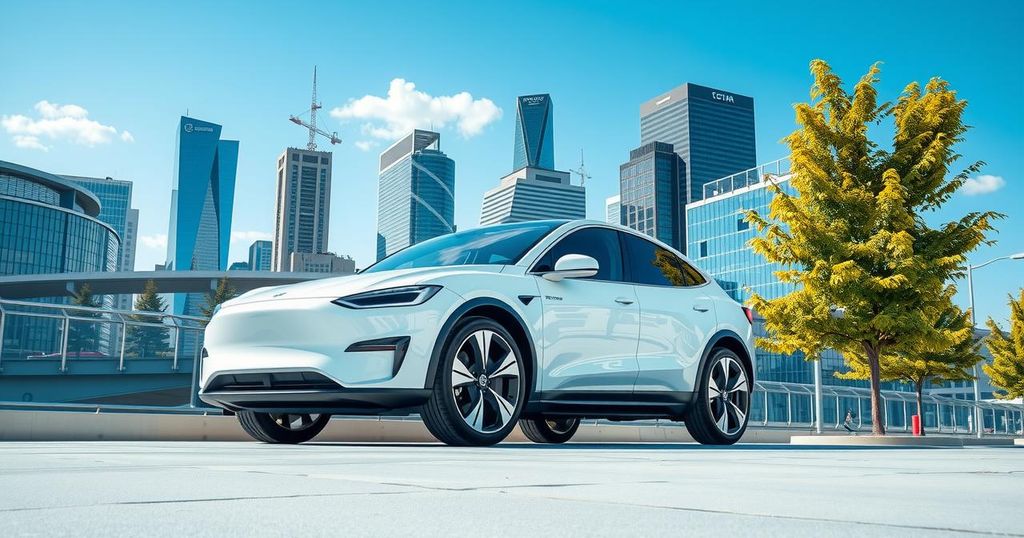Tesla Pauses Full Self-Driving Trial in China Pending Regulatory Approval
Tesla has paused its Full Self-Driving (FSD) trial in China pending regulatory approval after complaints. It plans to release the feature following this approval, aiming for a full rollout in 2023, while collaborating with Baidu to enhance the system. Data laws in China hinder Tesla’s training capabilities compared to the U.S.
Tesla, Inc. announced on Monday that it will release its smart driving-assistance feature in China subsequent to securing regulatory approval. This announcement follows the interruption of a free trial for its Full Self-Driving (FSD) service due to complaints. On social media platform Weibo, Tesla’s customer support stated, “All parties are actively advancing the relevant process and we will push it to you as soon as it is ready. We are also looking forward to it, please wait patiently.”
Last week, Tesla had expressed intentions to initiate the free trial of its FSD service in China from March 17 to April 16. The FSD encompasses a suite of advanced driving-assistance technologies designed with generative artificial intelligence to navigate complex traffic conditions. Tesla aims to achieve a full rollout of FSD within this year and is collaborating with Baidu to enhance the system’s performance, as reported by Reuters.
Tesla has conducted similar trials in the United States, where its FSD system benefits from local AI training, allowing for effective navigation without precise or current mapping. However, in China, regulatory data laws have impeded Tesla’s ability to utilize data from its 2 million electric vehicles for system training. In late February, new regulations mandated that over-the-air software updates related to autonomous driving must obtain regulatory approval beforehand.
In summary, Tesla is preparing to release its smart driving-assistance feature in China following necessary regulatory approvals. The company had planned a free trial for its FSD service but was required to pause it due to complaints. Unlike practices in the U.S., data restrictions in China limit Tesla’s ability to train its AI effectively. This situation highlights the complexities of regulatory compliance in international markets.
Original Source: www.tradingview.com








Post Comment